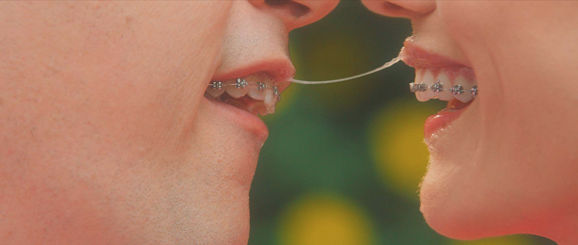Jocelyn DeBoer and Dawn Luebbe are an award-winning writing and directing team. DeBoer and Luebbe recently directed two episodes of TruTV’s “Adam Ruins Everything,” and in 2017, they sold a television pilot to IFC. They have written and produced three short films which have appeared in over 70 film festivals worldwide. “Greener Grass,” based on their short film of the same name, is their first feature.
“Greener Grass” will premiere at the 2019 Sundance Film Festival on January 26.
W&H: Describe the film for us in your own words.
JD&DW: On the surface, “Greener Grass” is a comedy satirizing suburbia, but to us it’s a horror movie.
W&H: What drew you to this story?
JD&DW: In addition to directing “Greener Grass,” we also wrote and star in it. We initially dipped our toes into this demented version of suburbia when we created the SXSW award-winning short film of the same name back in 2016. We had no intention of expanding it into a feature version at that time, but what started happening in our lives is that we kept finding ourselves saying, “Oh my God, this (particular unusual thing) is so ‘Greener Grass.’” Or people who’d seen our short would pitch us things from their lives that were “so ‘Greener Grass.'” And we naturally started building out the world, especially as bits we’d do with each other.
We love comparing similarities in our upbringings as Midwestern middle children in oh-so idyllic suburbs and taking specifics from our own lives and twisting them to fit our “Greener Grass” world. And then around the time we actually started putting pen to paper on the expanded project, something funny happened that was also really not funny. The news started getting, well, very “Greener Grass”: Adults acting like petulant children, people in power unable to see past what’s right in front of them, and a desire permeating our country both politically and culturally, to return to the “good old days.”
We felt that now, more than ever, was a great time to explore, not the people in power, but the polite society in this funhouse-mirror, timeless suburbia with its roots in those aforementioned eras of economic prosperity and social conservatism.
W&H: What do you want people to think about when they are leaving the theater?
JD&DW: We’re hoping the audience will have experienced a darkly comedic cinematic journey unique to any other, and leave arguing with their friends about what the heck it means.
W&H: What was the biggest challenge in making the film?
JD&DW: Some might say that we took on a bit of a beast for our first feature — which our producer did say once or twice. The movie stars children, a baby, and a seven-month-old puppy. We couldn’t show any vehicles other than golf carts, which are comedy gold. We shot in Georgia in August with, um, perfect weather conditions, our soccer ball had had six costume changes, and every adult in the damn thing needed braces.
W&H: How did you get your film funded? Share some insights into how you got the film made.
JD&DW: “Greener Grass” has a sole investor who may or may not be an orthodontist sad about the takeover of Invisalign.
W&H: What inspired you to become a filmmakers?
JD&DW: Our favorite thing to do as writers is create unusual worlds with their own unique logic and aesthetic. And we found that no one could better bring those specifics to life, exactly the way they exist in our brains, better than we could. So we started directing our own stuff.
W&H: What’s the best and worst advice you’ve received?
JD&DW: Best advice: “You don’t seem to get a lot done, maybe you should try working with a friend.”
Worst advice: “While there have been a lot of successful actor/directors, maybe you should think about not both starring in this one, since it’s your first feature.” Screw that, random orthodontist!
W&H: What advice do you have for other female directors?
JD&DW: You don’t have to go to film school. This applies to anyone, male or female, who hasn’t gone to film school and is afraid that means they can’t direct. It’s scary to feel like you don’t know all that technical stuff, but our experience has been that you learn those things fast when you’re thrown to the lions. And you’ll be surprised — you probably know more than you think.
W&H: Name your favorite woman-directed film and why.
JD&DW: One film we saw together that we thought absolutely rocked is Janicza Bravo’s first feature, “Lemon.” We got to know Janicza when our shorts were on the festival circuit together back in 2016, and it was so inspiring for us to see her erupt as a filmmaker with such a confident and unique debut feature.
W&H: It’s been a little over a year since the reckoning in Hollywood and the global film industry began. What differences have you noticed since the #MeToo and #TimesUp movements launched?
JD&DW: It’s nice that the door has been opened for these conversations and some very important progress has been made. But there’s a long way to go.







